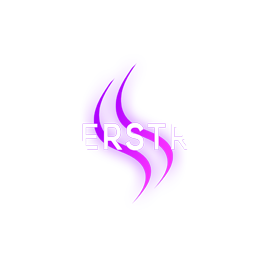I’ve become fanatical about reading as much non-fiction as I can that will improve my approach to game development, and the business of making games. In independent development — without the crutch of budget, manpower or time (or all three, let’s be honest) — a very different outlook and skill-set is required for success when compared to the world of AAA.
The books below aren’t necessarily game-related but have wider learnings that have shaped my thinking the most, and kept my discipline and focus in check as I’ve embarked on the arduous and daunting process of making, shipping and marketing games.
This is not a book-list about game design. This list is for developers that wear many hats, handling the development, marketing and business of their games. I’ve found each of them beneficial, in varying ways, and hope you get something out of them, too.
1. THE 4-HOUR WORK WEEK
Tim Ferris
I’ve read the 4-Hour Work Week three times now, and each time is more invigorating than the last. It’s rammed with highly practical, actionable advice and strategies for managing time and — ultimately — creating sustainable businesses. If you’re game-making is a side-project, you’ll find this particular useful.
2. A BEAUTIFUL CONSTRAINT
Adam Morgan
A Beautiful Constraint, as a title, is a perfect encapsulation of indie game dev. Working out ways to do more with less is at the very heart of it all, due to all those lovely limiting factors. While the case-studies in the book focus on a number of industries and mediums, all the learnings are key to successful game development.
3. CREATIVITY INC.
Ed Catmull
I love what this book exposes about the creative process of the Pixar greats. Each is so brilliant, with such a high quality bar, you forget they’re made by real life human-people. Catmull — Co-Founder of Pixar — highlights how poor company structure can directly affect product quality, and that good ideas can come from anywhere — regardless of your seniority within a business.
4. ATMOIC HABITS
James Clear
Side-projects can come with a heckuva lot of bad habits (or at least mine do): working in a bubble, staying up late, running on five hours sleep, poor life balance etc etc. Atomic Habits is about lifestyle design, and helps creators of any kind create and maintain healthy habits.
5. SHOE DOG
Phil Knight
The story of Phil Knight and Nike’s journey from a small distributor of Japanese Tiger track shoes, to the single biggest name in sportwear and trainers is a ridiculously captivating read. It’s got a real rags-to-riches narrative to it, often reading more like fiction, and contains a wealth of information on starting, running and growing businesses.
6. PERENNIAL SELLER
Ryan Holiday
Essentially a book that combines the fundamentals of marketing with much bigger principles of what makes a good product in the first place; what defines a product that becomes timeless? I’ve read this book twice in the past couple of years, and I think it’s the best book on marketing I’ve read.
7. HIT MAKERS
Derek Thompson
Similar to Perennial Seller, in a way, but with a greater marketing focus. Hit Makers dissects successful brands and products and analyses what contributed to that success.
8. RUNNING LEAN
Ash Maurya
A cliched entry on this list, perhaps, but for good reason. Running Lean is about production methodology and working in an iterative way that gets to a quality product or service over time. It’s the philosophy that gave birth to Early Access, essentially. This is now pretty established thinking for many teams that use agile development practices, but — if you have no knowledge of that world — this is an essential read.
9. REBEL IDEAS
Matthew Syed
Rebel Ideas is one of the most interesting books I’ve read in the past few years, for a number of reasons. In relation to game development, it speaks to the power of diversity with respect to quality or effectiveness of the end result. Syed conveys how cognitive diversity is what leads to better problem solving, less blind spots, and ultimately more interesting and innovative works.
10. GRAVITAS
Caroline Goyder
So much of indie development is about the hustle; whether it’s pitching to publishers or investors, or talking directly to your players. Speaking clearly, concisely and with conviction is a natural trait, for many, and is definitely something that can be learned. I bought this book on a whim before a big presentation, and found it surprisingly effective.
10. COMPANY OF ONE
Paul Jarvis
The natural inclination with the running of any business is to scale up, and to scale up as quickly as possible. In Company of One, Jarvis explains the effectiveness of staying small and reaping the rewards of a tighter, leaner process — only scaling up when absolutely necessary. The book repeats itself a lot, but the core principles are very well applied to indies, and of course solo-developers.
Each of these books has changed how I think about my work and my projects in some way; hopefully it does similar for you.
If you have any recommendations that have changed your approach to the business of your games — let me know!












